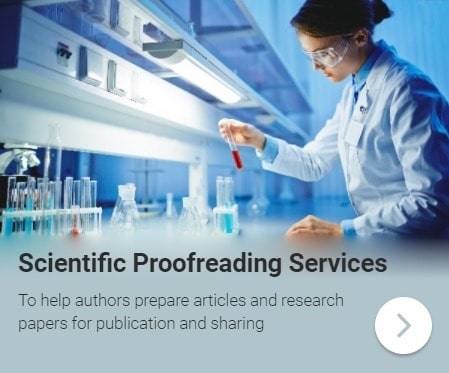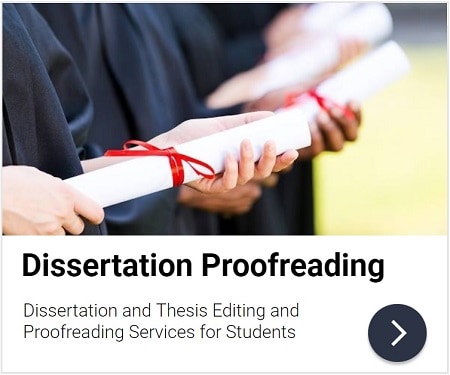4.8 Writing and Revising before and after the Thesis Examination
University regulations regarding the submission of a doctoral thesis both before and after the formal examination vary, so regardless of the method (print or electronic) you have been using to share work and feedback with your supervisor and committee members, you will need to make sure that your thesis is submitted in the format (and files) required for the formal submission prior to the examination, and again once the examination is over and final revisions are completed. Many universities in the twenty-first century require theses to be submitted electronically (in a file created by a word-processing program such as Word), but some will still want a print copy, and others will request both, especially for the final submission after the examination when even the paper a thesis is printed on has to be of a certain type for some universities (if so, the paper will usually be available for purchase via your department or university bookstore). Although you should have checked and conformed to any stylistic and formatting requirements much earlier in the thesis process because changing such details at this point may cause significant delays, do recheck any guidelines pertaining to these matters and be sure that you are following them thoroughly and precisely. Ensure also that you meet any temporal deadlines set by your university, department and/or committee. The examination copies of the thesis required for your supervisor, other committee members and the external examiner will usually be printed out (or otherwise reproduced) and circulated by your department, but if you need to produce and circulate these copies yourself, make sure that you do so according to university or department guidelines. Your department should also arrange the examination at a time when you, your committee members and your external examiner will be available, but you will want to discuss this scheduling with your supervisor in advance so that the examination can take place as soon as possible after you have finished revising and submitting the thesis, especially if time is short at this point.
You and your supervisor should also discuss the matter of your external examiner long before you submit the finished version of the thesis for the examination. The external examiner for a thesis should be an expert in your field and familiar with the scholarship used in the thesis, and he or she will ideally know a great deal about the specific topic, problem or phenomenon you have investigated. Both you and your supervisor will have ideas about who might be appropriate and will probably have been considering possible examiners since early in the writing process. As you finish up the thesis, your supervisor may choose to contact informally the person you decide upon, which can be immensely helpful because you will then have a good idea of whether he or she will be able to fill the role before your department makes the formal request. This can save a lot of time and administrative work as the examination is planned, and although it may be disappointing if you learn that you are not able to recruit the academic or scientist who would be your first choice, it is better to know sooner rather than later. You should be familiar with the work and publications of your external examiner in order to understand the perspective from which he or she will be approaching your thesis, and while you will probably already know his or her work through your familiarity with the scholarship in the area, you should definitely read any of the examiner’s new or unfamiliar publications and refresh your memory even about publications you already do know. Your university may pay for your external examiner to be present at your examination in person, but often in the twenty-first century an external examiner ‘attends’ a thesis examination via a video link, so do be prepared for that possibility; it may not be as pleasant as meeting your examiner in person and having the opportunity to have lunch with him or her after the examination, but it works.
4.8.1 Preparing for and Surviving the Examination
The best way to prepare for defending your doctoral thesis in the final examination is to be intimately and thoroughly familiar with your own work, and to anticipate, as much as this is possible, the questions and concerns of your examiners. A careful and critical read through the thesis shortly before the examination, taking notes as new ideas and potential problems come to mind, will cover the first, and the feedback you have received on the many parts and drafts of your thesis will provide much of what you need to know about the concerns of your supervisor and other committee members, but ensuring that you are familiar with their work and publications (as you probably already are) can also be helpful. From the perspective of your examiners, you are quite literally changing from student to colleague in the course of your thesis examination, and your examiners are likely to begin treating you as a colleague or professional equal. This is a compliment, of course, but it means that you may see a different aspect of their personalities – one less nurturing and potentially more combative – so do be prepared for this change, which can sometimes come as an unsettling surprise to doctoral candidates. Your external examiner will almost certainly adopt this professional stance, since you are not his or her student, and the job of the external examiner is to ensure (from beyond your university) the intellectual quality of the thesis. Your supervisor will likely remain supportive, but even this is not certain – some supervisors feel the need to take a step back and use a tougher approach in an examination, particularly at the doctoral level – so you may find yourself rather alone in defending your research and the thesis that has grown from it. This is not a cause for panic, however, and I warn you of the possibility only to ensure that you are prepared for it emotionally. Conducting the research for your doctorate and writing and revising your thesis have certainly prepared you intellectually to defend your work and its significance with wisdom and diplomacy.
If you are required to give a presentation on your thesis as part of the examination, you will want to plan and prepare this as you read through the thesis, taking notes specifically designed to write the presentation. Such a presentation will almost certainly be very similar to the presentation you offered in your proposal meeting (see Section 3.7 for details), so if such a meeting was part of your degree requirements, you will already have some experience of this process. Remember, however, that if you have given a proposal presentation, your supervisor and other committee members will likely remember it (at least to some degree), so a little creativity and originality is in order to avoid reusing material in the exact same form, yet you also do not want to eliminate the basics, because your external examiner is hearing your voice for the first time. Since your research and thesis are now complete, you will need to introduce and discuss your project as a whole and reflect on the overall significance of the study. Remember that your presentation should not be too long (talking for an hour or more will almost certainly prove too much), and you will need to highlight the most interesting, significant or surprising aspects of your research and its implications, as well as acknowledging its major limitations (perhaps along with what you would change or recommend to avoid them), so try to be as concise as possible. Your audience has, after all, read your thesis and you are simply providing an informative summary that demonstrates your understanding of its contents and significance. You may also want to comment on the experience of researching and writing a thesis, discuss how your research has developed and changed since your proposal meeting or say something about your future plans, but do check with your supervisor to be sure that such commentary would be appropriate.
The questions you encounter may be of all kinds, both the expected and the unexpected. You might find yourself considering a problem or issue that never arose during all the exchanges of material between you and your committee members – this is particularly the case with questions from an external examiner, whose new perspective provides opportunities for you to refine both your thinking and your thesis at this late stage. On the other hand, you may find yourself answering questions on matters that have arisen repeatedly during the proposal and writing processes. Such questions are likely to be directed by the committee members familiar with your work and may well focus on issues that you have had to defend in the past. Your committee may be using these questions to inspire a better answer than you provided earlier or to hear again (or, more accurately, have your external examiner hear) the brilliant response you offered to explain a potential problem when the matter first arose. It is often very difficult to determine, however, exactly what the intentions of your committee members may be, and it is ethically inappropriate for them to inform you about such aspects of the examination in advance, so the best policy is to listen carefully to each and every question and provide the best answer you can on the basis of the research you have done, the thesis you have written and your own perspective. If you feel truly unable to answer a question with specific details, it is better to admit that you had not yet thought of the problem but certainly will than to waffle in an attempt to find words and ideas that will very likely prove unconvincing to your knowledgeable listeners. You may be asked about your overall thesis experience and/or your future research and publication plans (especially if you have not included anything on these in your presentation). Questions of the latter kind are a very good sign indicating that the people asking them envision an academic or scientific future for you, so they should be answered optimistically (not with ‘Well, if I pass this thesis exam’ – assume instead that you are going to pass).
Why PhD Success?
To Graduate Successfully
This article is part of a book called "PhD Success" which focuses on the writing process of a phd thesis, with its aim being to provide sound practices and principles for reporting and formatting in text the methods, results and discussion of even the most innovative and unique research in ways that are clear, correct, professional and persuasive.
The assumption of the book is that the doctoral candidate reading it is both eager to write and more than capable of doing so, but nonetheless requires information and guidance on exactly what he or she should be writing and how best to approach the task. The basic components of a doctoral thesis are outlined and described, as are the elements of complete and accurate scholarly references, and detailed descriptions of writing practices are clarified through the use of numerous examples.
The basic components of a doctoral thesis are outlined and described, as are the elements of complete and accurate scholarly references, and detailed descriptions of writing practices are clarified through the use of numerous examples. PhD Success provides guidance for students familiar with English and the procedures of English universities, but it also acknowledges that many theses in the English language are now written by candidates whose first language is not English, so it carefully explains the scholarly styles, conventions and standards expected of a successful doctoral thesis in the English language.
Individual chapters of this book address reflective and critical writing early in the thesis process; working successfully with thesis supervisors and benefiting from commentary and criticism; drafting and revising effective thesis chapters and developing an academic or scientific argument; writing and formatting a thesis in clear and correct scholarly English; citing, quoting and documenting sources thoroughly and accurately; and preparing for and excelling in thesis meetings and examinations.
Completing a doctoral thesis successfully requires long and penetrating thought, intellectual rigour and creativity, original research and sound methods (whether established or innovative), precision in recording detail and a wide-ranging thoroughness, as much perseverance and mental toughness as insight and brilliance, and, no matter how many helpful writing guides are consulted, a great deal of hard work over a significant period of time. Writing a thesis can be an enjoyable as well as a challenging experience, however, and even if it is not always so, the personal and professional rewards of achieving such an enormous goal are considerable, as all doctoral candidates no doubt realise, and will last a great deal longer than any problems that may be encountered during the process.
Interested in Proofreading your PhD Thesis? Get in Touch with us
If you are interested in proofreading your PhD thesis or dissertation, please explore our expert dissertation proofreading services.


Services
PhD Dissertation Proofreading
Our PhD dissertation proofreaders specialise in improving grammar, sentence structure, citations, references, clarity, logical flow and readability.
Master’s Dissertation Proofreading
To avoid failure and its consequences, send your dissertation to our master’s dissertation proofreading service.
Dissertation Proofreading Services
Our dissertation proofreaders specialise in correcting and perfecting the language, editorial styles and references across all science fields.
Headquarters
Dissertation-Proofreading.com
Allia Future Business Centre
The Guildhall
Market Square
Cambridge
CB2 3QJ
United Kingdom
More Expert Proofreading Services
Journal Editing
Journal article editing services
PhD Thesis Editing
PhD thesis editing services














